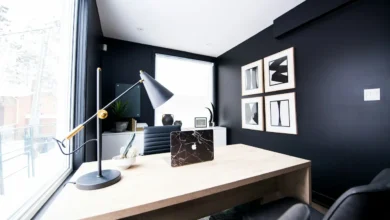Retail trading hours should be extended, says Productivity Commission
The Productivity Commission has released its much-anticipated draft report into the state of the Australian retail industry.
One of the most controversial items the investigation looked into was $1,000 GST threshold. Currently, items that are shipped into the country are exempt from GST if they are worth less than $1,000.
The report found the exemption to be only a minor part of the competition story of the retail sector. Though it did recommend that it should be reduced.
The $1,000 threshold drew the ire of the Fair Imports Alliance, and other retail industry bodies, with one group representing the likes of David Jones, Coles and Woolworths calling for it to be lowered to $100.
There was mention of ‘many submissions’ made that claimed the threshold was undermining the competitive position of Australian retailers in comparison to overseas competition.
“In principle the GST, as a broad based consumption tax, should apply equally to all transactions, to ensure tax neutrality across different markets and goods – in other words, foreign and domestic retailers should be treated similarly,” read the report.
Despite the recommendations of the Productivity Commission, there is no guarantee of government action.
Assistant treasurer Bill Shorten told ABC’s 7:30 report that if we abolished the GST threshold tomorrow, it would cost $3 for every $1 of taxation collected.
The example that Shortern was referring to was from the PC’s example of dropping the threshold to $20, where it would cost $1.6 billion to recoup $500 million in taxes.
“Most items that people are buying online are under $100 The other thing to remember is that the big retailers would have you believe that but for GST, life would be better,” said Shorten.
“The fact is that everyone who buys items under $100 still has to buy freight and postage and handling so there is already a natural barrier to competition overseas,” he added.
The minister also defended the PC’s reference to inflexible workplace relations laws having an impact on the retail sector, claiming shop owners should look in the mirror.
“Shop assistants get $15 or 16 an hour, the idea that the future of the retail industry on cutting their wages back, to me doesn’t fly,” he said.
“What the PC does say, which is remarkable and new to the debate, is whiles there is a range of things the govt can do, the retail industry needs to sharpen up its act and needs to innovate and adapt to consumers changing needs,” added Shorten
Trading hours
Trading hours was also a point of contention which the commission looked into. Currently, the ACT and the Northern Territory have completely deregulated trading hours – meaning business owners can open and close whenever they want too. Other states have tighter controls, with Queensland, South Australia and Western Australia being the strictest.
According to the report, retail trading hours should be deregulated in all states.
“In today’s more competitive retail trading environment, where consumers have greater access to goods from all over the world and can order those goods any time of day, there is a greater imperative for retailers to have the ability to respond to changing consumer tastes and preferences,” read the report.
The commission also looked into the impact planning and zoning regulations are having on business, finding that some restrictions need to be changed. It pointed to some instances where rules are overly complicated, particularly for those setting up a new business.
“Planning and zoning regulation serves a valuable social purpose, but also restricts the flexibility of retailers in responding to consumers’ preferences,” read the report.
Retail industry groups were quick to welcome the findings of the report, with the Australian Retailers Association (ARA) pointing to the imbalance of power it highlighted between landlords and retailers.
“As retailers struggle with poor trading conditions, skyrocketing rents are driving many businesses into the ground,” said Russell Zimmerman, executive director of the ARA.
“The ARA also supports recommendations for a harmonisation of lease information and nationally consistent model legislation as well as voluntary national code of conduct for shopping centre leases that is enforceable by the ACCC,” he added.
The Fair Imports Alliance (FIA) jumped on the findings in favour of lowering the $1,000 GST-free threshold.
The recommendation by the PC that there are in principle grounds for the threshold to be lowered is great news for retail,” said Brad Kitschke, spokesperson for the FIA.
Kitschke also welcomed the PC’s investigation of Customs processes, and called for speedy action, claiming retailers shouldn’t be punished because the bureaucracy is inefficient.
“Retailers are embracing online retail and more and more Australian retailers are engaging in a multi-channel approach,” he said
“The PC’s draft report has made it clear that inefficient parcel processing through Customs must be improved as it is the sticking point to allow for the low value importation threshold to be changed,” added Kitschke. “This must happen as soon as possible.”
Deborah Sharkey, MD of eBay Australia, believed the report reinforced the need for retailers to move online.
“Today’s guidance from the Productivity Commission outlines a clear message for Australian retailers; they must embrace online in order to remain competitive and relevant to consumers,” she said.
The full 400-page draft report can be viewed here.




